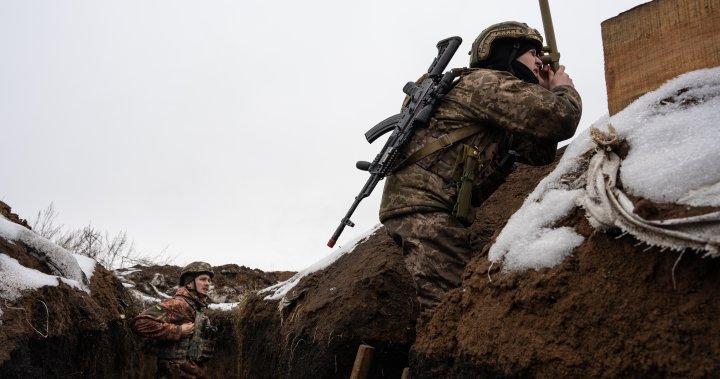
Despite ongoing Russian threat, Ukraine talks with West go on
Global News
Russia and the West remain far apart on the most critical issues and it’s unclear how a compromise could be reached, but talks are ongoing.
When the U.S. and NATO rejected the Kremlin’s security demands over Ukraine last week, fears of an imminent Russian attack against its neighbor soared.
But instead of sending armored armadas across the Ukrainian border as the U.S. and its allies worried, Moscow bombarded Western capitals with diplomatic letters about an international agreement that the Kremlin sees as a strong argument for its position in the standoff.
Even though President Vladimir Putin said a month ago that he wanted a quick answer to the Russian demands and warned that Moscow would not accept “idle talk,” earlier this week he signaled an apparent readiness for more talks with Washington and NATO.
And that offers a glimmer of hope. Although more than 100,000 Russian troops still hover near Ukraine and weeks of talks have led to no major concessions by either side, at least Russia and the West keep talking, and for some experts that’s a reason for cautious optimism.
“On the one hand Putin did fire rhetorical barbs against the West and emphasized perceived slights; on the other hand he also did leave open the possibility of talking in more detail about at least some of the issues where the West has been willing to engage,” said Jeff Rathke, a former U.S. diplomat and president of the American Institute for Contemporary German Studies at Johns Hopkins University.
“We’re kind of where we were a few weeks ago,” Rathke said. “Putin has kept his options open. He’s not ruled out talks but also not reduced his strident rhetoric.”
Russia and the West remain far apart on the most critical issues and it’s unclear how a compromise could be reached. But the Kremlin’s recent emphasis on diplomacy appears to reflect Putin’s hope to achieve his goals through negotiations while using the deployment of the troops near Ukraine as leverage.
“Russia will maintain a tough stand while indicating that it’s not shutting the door to talks,” said Fyodor Lukyanov, who heads the Moscow-based Council for Foreign and Defense Policies and closely follows the Kremlin thinking. “Such complex agreements aren’t reached in a relaxing atmosphere over a cup of tea, so all methods of persuasion are being used, including the demonstration of force.”





















 Run 3 Space | Play Space Running Game
Run 3 Space | Play Space Running Game Traffic Jam 3D | Online Racing Game
Traffic Jam 3D | Online Racing Game Duck Hunt | Play Old Classic Game
Duck Hunt | Play Old Classic Game











